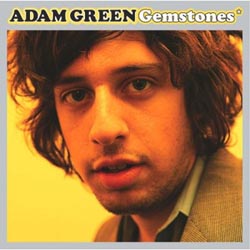Reviewed by: Roland Bruynesteyn
Album assigned by: Joseph Middleton-Welling
In many ways, this album has a somewhat Pink Floydian feel: simple drums, prominent guitar (circa Animals, I think), mostly minor chords, a sad and pessimistic atmosphere and a voice that is a little lower than Gilmour’s and a little less sadistic than Waters’. Keyboards are almost absent however, and they lose to Pink Floyd in other fields as well. Overall starting to listen with Pink Floyd in mind may not be honest or helpful, but I could not get it out of my head.
Generally, the album is very monotonous and it has a slow, dragging, drony feeling in many places. In “Gravel Bed”, the singer has real trouble to stay in tune and it’s quite painful to hear. “Pickup Song” starts with some quieter guitar, before becoming a drone again. Next point of reference was Ragged Glory by Neil Young, also 1990-ish. Neil’s voice may be an acquired taste as well, but as far as energy goes Neil Young and Crazy Horse win hands down.
OK, let’s give them a “Second Chance”: five songs in, we get a different sound. Probably still a guitar, but it sounds like a cross between a mellotron and an organ. Here the drone works and it may be the best song so far.
In “Cigarette Machine” the singer is not really singing but telling the story, such as it is. There is some use of dynamics here, that elevates the song somewhat. “Old Things” employs a similar trick, although the singer is trying to sing again. “Pea” is the best song of the album to my ears, partly because it’s mostly acoustic, perhaps…
This is really nothing for me, too few ideas (it’s all one song, really) and poorly executed, but I may be an old conservative dad-rocker. Youtube reviews on the whole are (very) positive but this music fails to engage me at all.
This album is probably ideally suited for a depressed 16-year old boy who can empathize with the feelings expressed here, while contemplating his own (apparently) shitty future. “Luckily” I was 15 when the Wall came out! If waterboarding will not return (as per current CIA director), playing this music loud, ten hours a day, might be a good follow up.


